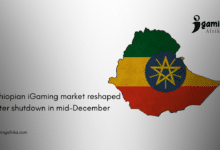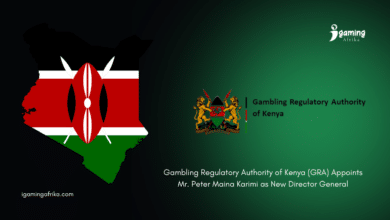Remote Gaming License Will Destroy Nigeria’s Indigenous Gaming Industry and Over 200,000 Jobs

8th October 2025 – Few legislative developments have stirred as much unease among industry insiders as the Central Gaming Bill, now before the Senate for concurrence. The Bill, which quietly passed the House of Representatives earlier this year, seeks to introduce sweeping federal powers over gaming — including a Remote Gaming License that would allow operators to offer online gaming services nationwide.
This move, which Senator Barau Jibrin, the Deputy Senate President reportedly referenced during plenary debate on 7th October 2025, strikes at the heart of Nigeria’s economic structure and constitutional order. It disregards the Supreme Court’s landmark judgment of November 2024, which reaffirmed that gaming and betting fall squarely within the jurisdiction of state governments, not the federal government.
But beyond the legal overreach, the economic consequences could be devastating.
Nigeria’s gaming ecosystem has evolved over the last decade into one of the country’s most dynamic non-oil sectors. Indigenous operators such as Bet9ja, Baba Ijebu, 1xbet, BetKing, Winners Golden Chance and many others have built multi-billion-naira enterprises that employ Nigerians, pay local taxes, and invest in technology and consumer protection.
Collectively, the sector supports over 200,000 jobs across 36 states. These include agents, customer-service representatives, payment processors, software developers, and shop owners — people whose incomes circulate within local economies, sustaining families and communities.
Under the proposed Remote Gaming Licence, however, offshore companies would be allowed to operate in Nigeria without any local footprint. They would neither employ Nigerians nor contribute taxes to any state or federal revenue pool. Their only connection to Nigeria would be digital — extracting money from Nigerian players and repatriating profits abroad. The result would be economic leakage on a massive scale — a digital drain of value from one of Nigeria’s most promising sectors.
At a time when President Bola Ahmed Tinubu’s administration is focused on attracting productive investment and promoting job creation under the Renewed Hope Agenda, it is difficult to reconcile the logic behind a policy that invites foreign operators to profit from Nigeria without investing in it.
A remote gaming framework would do the opposite of what this government has promised — it would destroy domestic jobs, reduce taxable income, and discourage local enterprise. It would also undermine state governments’ ability to generate internal revenue, creating wider fiscal imbalances across the federation.
Read Also: Central Gaming Bill Sparks Fresh Legal Battle Between Lagos and the National Assembly
In simple terms, remote gaming is not investment — it is extraction.
Across advanced federations, gaming regulation remains decentralized for a reason. In the United States, each state regulates its own betting markets, often coordinating across borders but never surrendering sovereignty. Canada and Switzerland operate similar systems, where subnational entities manage gaming within their boundaries.
Switzerland’s model is particularly instructive. The Gespa (Inter-Cantonal Gaming Authority) coordinates cooperation among cantons while respecting their individual powers. Nigeria’s own Federation of State Gaming Regulators of Nigeria (FSGRN) already mirrors this structure — facilitating inter-state collaboration, technology-based compliance, and harmonized online monitoring across jurisdictions.
If these mature economies can maintain local control in the digital age, there is no justification for Nigeria to move in the opposite direction.
Proponents of the Central Gaming Bill argue that remote gaming will modernize the industry and increase efficiency. But this claim ignores both technological reality and constitutional logic. Every online gaming transaction can be traced through IP addresses and geolocation tools, allowing regulators to identify the state in which the transaction was consummated. This means that states already possess the capacity to regulate online gaming within their jurisdictions. There is no vacuum to fill — only a constitutional boundary to respect.
If passed in its current form, the Central Gaming Bill could dismantle one of the few Nigerian industries that has successfully balanced innovation, employment, and revenue generation without government subsidies.
It would replace a thriving domestic market with a virtual marketplace controlled by entities that owe Nigeria nothing — no jobs, no taxes, and no social responsibility.
The economic fallout would be immense. Thousands of agents and small business owners would lose their livelihoods. State revenues would plummet. And Nigeria would once again find itself exporting value instead of creating it.
Nigeria’s gaming future lies not in centralization, but in cooperative federalism — where states collaborate on shared regulatory frameworks while maintaining control over economic activity within their borders.
The Senate must therefore approach the Central Gaming Bill with caution and clarity. Legislating away local authority in the name of modernization is a mistake that could take years to reverse.
If Nigeria is serious about protecting jobs, promoting innovation, and respecting its Constitution, then the path forward is clear: reject the Central Gaming Bill and strengthen state-based regulation that keeps investment — and opportunity — within our borders.























